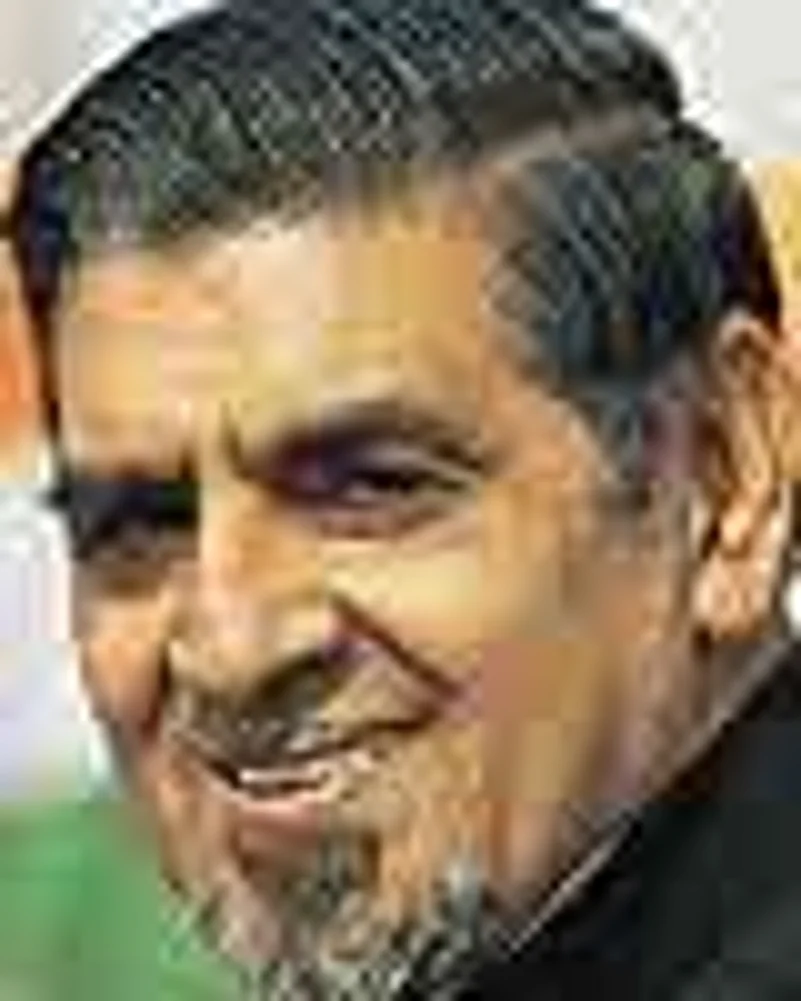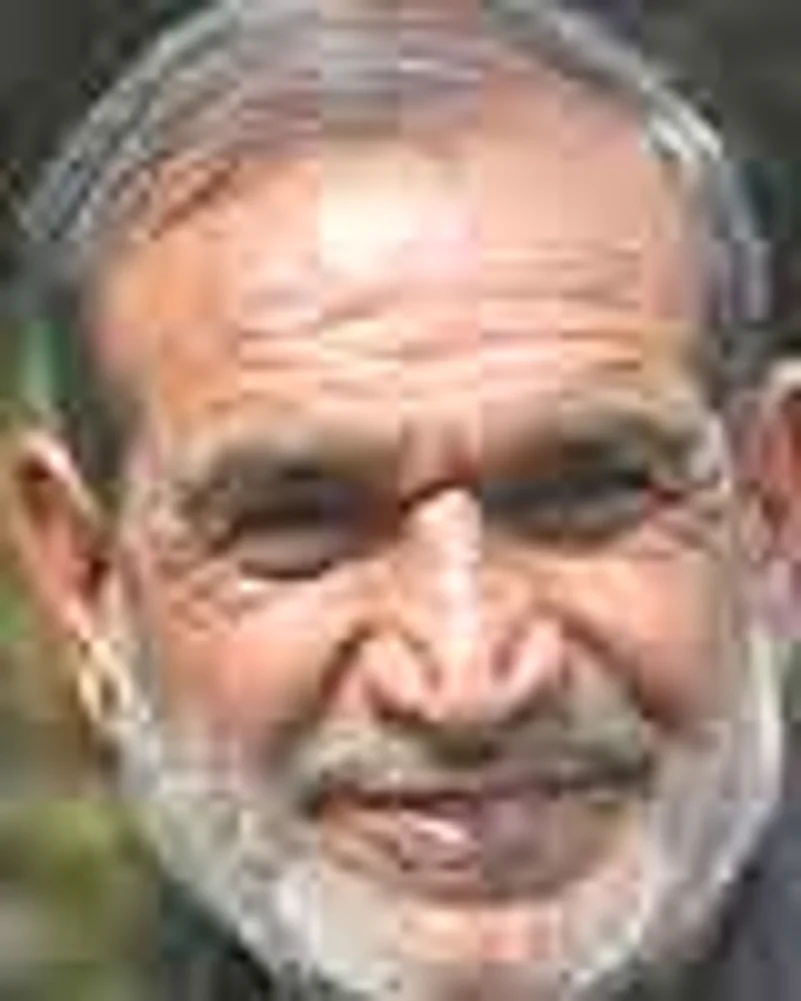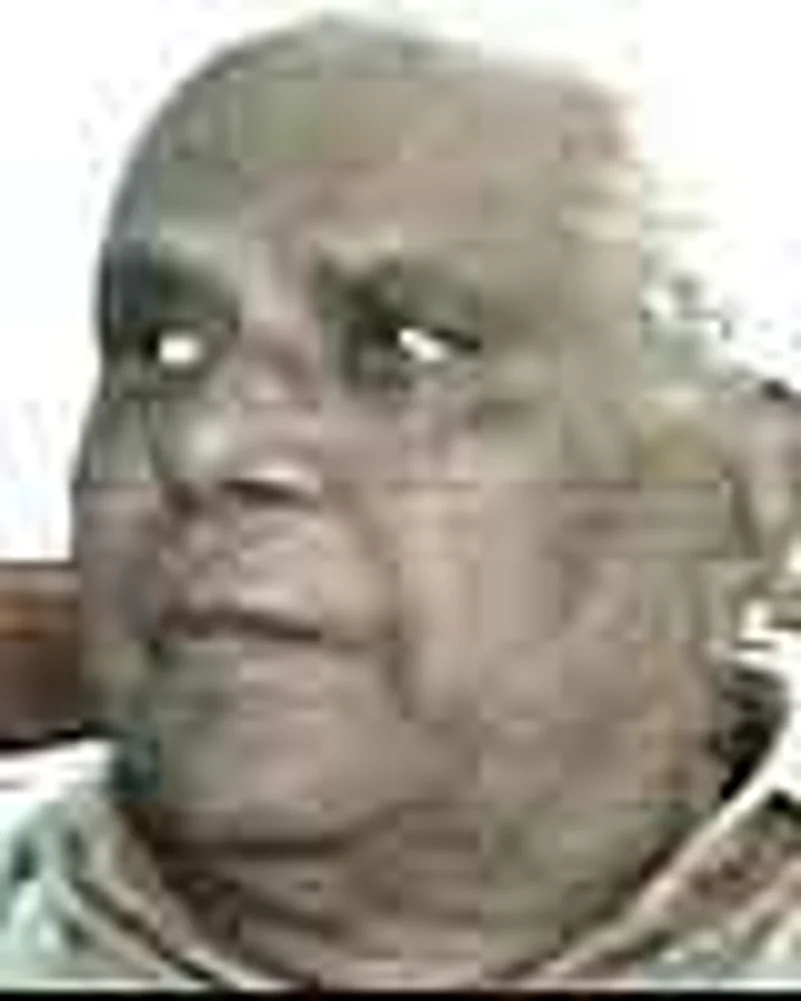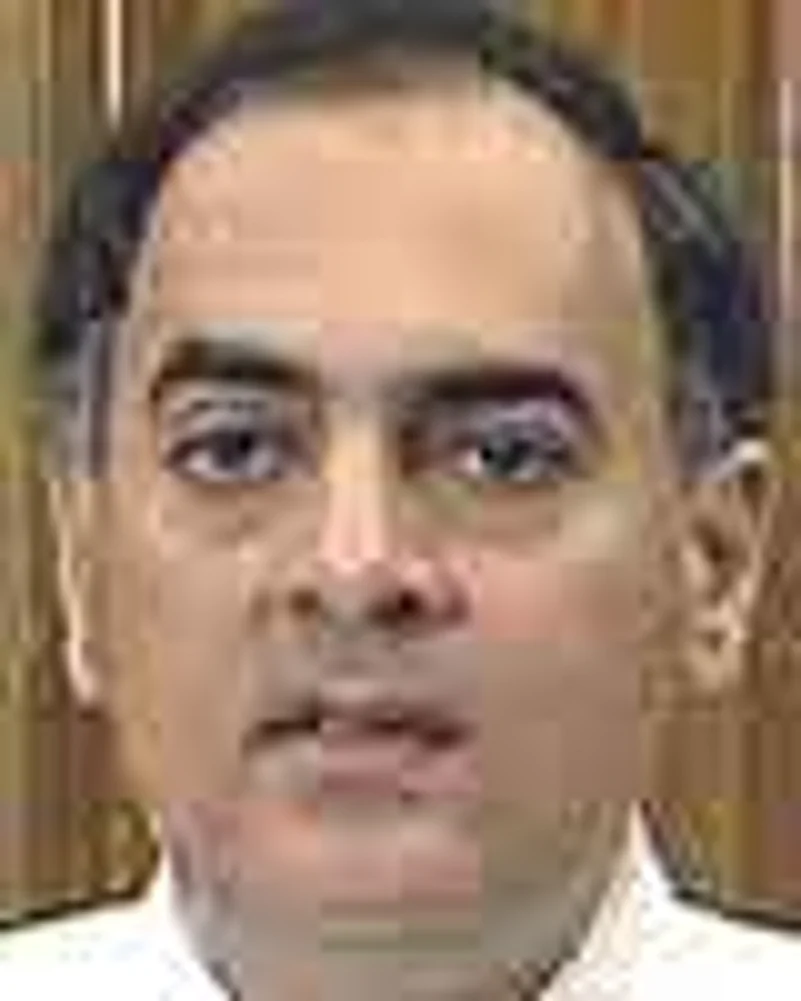It has been more than 20 years when, after the assassination of Indira Gandhi, a brutal carnage of estimated 3,000 Sikhs took place in the national capital (initially dismissed by the then Prime Minister Rajiv Gandhi as: "when a big tree falls, the earth is bound to shake") and after many commissions of enquiry had failed to bring any of the prominent guilty to justice, the Nanavati Commission of Inquiry had been set up by the NDA government way back in 2000, and had submitted its report to the current UPA government as far back as February 9, 2005.
While there has been considerable press-coverage of the "Gujarat riots" of 2002 and while our railway minister had cynically exploited the strangely timed release of the interim report on Godhra by the Justice U C Banerjee committee before the Bihar elections, the central government had avoided even tabling the final report by the the Nanavati Commission of Inquiry till today, when the statutory six months limit of placing an Action Taken Report (ATR) was coming to an end.
It is yet another irony that the same 70-year-old Justice G T Nanavati holds the key to delivering justice on the two worst riots witnessed by Independent India, the 1984 anti-Sikh riots and the Gujarat riots of 2000, and was appointed by the BJP-led NDA government.
The report raises questions over current Union Minister and Congress leader Jagdish Tytler's role, saying it was "very probable" he was involved. It further says Member of Parliament Sajjan Kumar's role should be re-investigated. Despite the fact that the Nanavati report clearly points a finger at Tytler, Kumar and Bhagat, the Centre says there isn't enough evidence to prosecute. Significantly the then interim Prime Minister Rajiv Gandhi and the then Home Minister Narasimha Rao have not been blamed at all.
Instead of any action against the guilty, various Congress spokesmen have been shamelessly claiming "victory and vindication" on the grounds that the then central government of the time has not been named, as the report says there is "no evidence suggesting that Rajiv Gandhi or any other high-ranking leader had suggested or organised attacks". Justice Nanavati maintains that he had to go by the evidence which was placed before him; and it is not exactly a state-secret as to how common and easy it is to have statements withdrawn or changed, or simply to not record them, or to have shoddy collective investigations without focussing on the virtual who's who of the Congress party of that period, many of whose leading lights continue to be ministers and members of Parliament even today or of the police and the administration.
Predictably, the ATR capitalises on the wording of the report and the home minister, that worthy of immaculate misconception, has blithely decided to also highlight that only "local level leaders" of the Congress were found to have been involved in instigating the violence and in participating in it.
But when specifically asked about the three Congress leaders Sajjan Kumar, Jagdish Tytler and H K L Bhagat whom his report points a finger at, Justice Nanavati indicates that the ATR had clearly ignored his suggestions.
Critics and human rights activists who have battled for justice for riot victims have accused Nanavati of creating scapegoats in the Delhi police and local Congress workers and letting the top leadership off. The BJP which reserved most of its criticism for the ATR and the centre however did say that the clean chit to the Congress top leadership was not credible.
In this regard, what could be more ironical than the fact that the same day also saw the Supreme Court passing severe strictures against the Gujarat administration where it said: "Either the police are conniving with the accused or wholly worthless"?
.
It is pertinent to note that in November 1984 itself, a joint inquiry by the PUCL and PUDR had come out with a comprehensive report on the 1984 riots that has been called a prototype for citizen's response which had, based on the eye-witness testimony, named not only the Congress politicians but also the police and other administrators who had been directly implicated by the survivors and eye-witnesses.
In many significant ways, the whole carnage of 2002, as has been widely commented, used the 1984 barbarity as its blue-print. While it is unquestionably and undeniably true that justice has to be on the basis of evidence, the Congress party owes it to the country that it stops hiding behind legalese, clutching at technicalities, pleading lack of "evidence". It is the public perception which needs satisfaction. And for that it is important that those perceived to be guilty are kept away from positions of power, pending an independent focussed enquiry.
Highlights of the report:
On Jagdish Tytler, Congress, Union Minister

Nanavati Commission: The Commission considers it safe to record a finding that there is credible evidence against Jagdish Tytler to the effect that very probably he had a hand in organising attacks on Sikhs. The Commission, therefore, recommends to the government to look into this aspect and take further action as may be necessary.
Action Taken Report: On completion of investigation, nine challans were filed in which 14 persons were accused and ten were cited as prosecution witnesses. After completion of the trial, 13 of the accused persons were convicted and one was declared as proclaimed offender by the court. In another case, a court acquitted all 31 accused persons and Tytler was not named as an accused. In view of the fact that the Commission itself is not certain that Tytler had a role in organising the attacks on Sikhs and in the context of the judicial verdicts on the incidents mentioned in the Commission's report, any further action will not be justified. It may be pointed out that in criminal cases, a person cannot be prosecuted simply on the basis of probability.
Jagdish Tytler, Union Minister, Congress: Do not attach my name to other Congress leaders (who have been named in the report). The Commission has based its remarks on me on the basis of an affidavit filed by one Surinder Singh, which was later withdrawn by him. There have been nine inquiry commissions on the riots but barring the Nanavati Commission none have held me responsible for attacks on Sikhs. I do not know how come my name figured in this Commission of Inquiry. I approached the High Court and it ordered another inquiry and I was exonerated. I was with the body of late Prime Minister Indira Gandhi for eight hours and later I was out of Delhi. How could I have organised the mob that killed Sikhs. Anyone who is responsible for the killings should be given severest punishment.
On Sajjan Kumar, Congress, Member of Parliament, and Balwan Khokhar

Nanavati Commission: There is credible material against Kumar for recording a finding that he and another Congress leader Balwan Khokhar were probably involved as alleged by witnesses.The Commission ..recommends to the government to examine only those cases where the witnesses have accused Sajjan Kumar specifically and yet no chargesheets were filed against him and the cases were terminated as untraced and if there is justification for the same, take further action as is permitted by law.The cases which were closed as untraced and which still deserve to be re-examined are those registered under three FIRs in Sultanpuri Police Station, two FIRs in Mangolpuri Police Station and one FIR at Delhi Cantt Police Station.
Many witnesses have stated about the involvement of Sajjan Kumar, Balwan Khokhar, Pratap Singh, Maha Singh and Mohinder Singh. There is ample material to show that no proper investigation was done by the police even in those cases which were registered by them. Even while taking their statements, the police had told them (complainants) not to mention names of the assailants and only speak about losses caused to them. There is also material to show that the police did not note down the names of some of the assailants who were influential persons.
In view of these facts and circumstances and considering the fact that Sajjan Kumar and Balwan Khokhar were influential persons in this (their) area, their acquittal in criminal cases cannot be given much importance...Sajjan Kumar and Balwan Khokhar were leaders of the locality because of which there is no question of their mistaken identity. Why so many persons had named him (Sajjan) and attributed acts like addressing meetings and inciting people to kill Sikhs and to loot and destroy their properties, remains unexplained by Sajjan Kumar. A technical defence by Kumar that these witnesses had not named him before the police or in the courts is not a good explanation for disbelieving those witnesses.
Action Taken Report: The incidents regarding arson and looting in the riots that followed the assassination of Indira Gandhi in area under Police Station Bara Hindu Rao in the capital, burning of Gurdawara Pul Bangash and killing of Thakur Singh and Badal Singh on October 31 and November one, 1984 were investigated.
None of the 96 prosecution witnesses, who deposed before the court, named Sajjan Kumar as an accused. Kumar was acquitted by the court of Manju Goel, Additional Sessions Judge, Patiala House Court, New Delhi, vide her judgement of December 23, 2002 in a case by CBI on the basis of the affidavit filed by Ms Anwar Kaur before the Justice Jain-Banerjee Committee
No fresh material or evidence has been produced before the Justice Nanavati Commission against Sajjan Kumar in connection with incidents of riots covered under an FIR in Sultanpuri Police Station. Therefore, it will not be just to reopen this case.
On Dharam Dass Shastri, Congress leader
Nanavati Commission: There is credible evidence against Dharam Dass Shastri that he had instigated his men, Tek Chand Sharma and Rajinder Singh to organise attacks on Sikhs. The government should examine the relevant material and direct investigation or further investigation as may be found necessary with regard to the allegations.
Action Taken Report: The incident was earlier investigated in connection with an FIR in the Karol Bagh Police Station and a chargesheet was filed in the court against ten persons. On completion of trial, the court of Additional Sessions Judge S. S. Bal in its judgement on November 12, 1992, had convicted two of the accused, namely Tek Chand Sharma and Rajinder and acquitted the rest. Shastri was not named as an accused in this case. However, as recommended by the Commission, the government would examine the factual position for appropriate action.
On Delhi Police
Nanavati Commission: If timely action had been taken against rioters, probably many lives could have been saved.
Police personnel remained passive and did not provide protection to the people. Such riots should be controlled effectively, police should function independently and all complaints should be registered and investigated by independent agencies.
Action Taken Report: The Government endorses these observations and it has decided to advise state governments, union territories and Delhi Police to take necessary action accordingly.
On S. C. Tandon, the then Delhi Police Commissioner
Nanavati Commission: It is no explanation to say that he was not properly informed by his subordinates. It was his duty and responsibility to remain aware of what was going on in Delhi during those days and to take prompt and effective steps. He should have known that the policemen on the spot were ineffective and in spite of the curfew, mobs indulging in violence were moving freely and were committing acts of looting and killing freely.
Action Taken Report: Tandon was replaced on November 12, 1984 and he has since retired. As mentioned earlier there are legal difficulties in taking departmental action against retired government servants. However, the government would examine this matter further in consultation with the Ministry of Law for appropriate action.
On other police officers
Nanavati Commission: Police subinspector Hoshiar Singh and his men did not protect a gurdwara and did not disperse the mob that had assembled there to unleash violence.
Action Taken Report: Action cannot be taken because Singh and the two constables are now retired. The government will consult the law ministry if action can be taken against them.
Nanavati Commission: There should be an Inquiry against subinspector Mange Ram for dereliction of duty.
Action Taken Report: Legal hurdles in inquiry because he has retired from service.
Nanavati Commission: Action should be taken against following officers as they were negligent in performing their duties:
Deputy Commissioner of Police of South district Chander Prakash; Station House Superintendent of Srinivaspuri O P Yadav; Station House Superintendent of Delhi Cantt Rohtash Singh; Station House Superintendent of Nizamuddin Ram Phal; Subinspector Ved Prakash; and head constables Shakti Singh and Mahinder Singh.
Action Taken Report: No evidence against some policemen while others are retired.
On Padmakar Gavai, the then Delhi Lt Governor

Nanavati Commission: Though he does not appear to have delayed taking of required actions, it does appear to the Commission that he did not give as much importance to the law and order situation in Delhi as the situation demanded. He (Gavai) was the person responsible for maintenance of law and order in Delhi and, therefore, he cannot escape the responsibility for its failure.
Action Taken Report: The government had taken immediate administrative action. Gavai was replaced by M.M.K. Wali as LG of Delhi on November 4, 1984.
Padmakar Gavai, former Delhi Lt Governor: Narasimha Rao was only making calls to me to protect his friends and telling me their locations. I approached then Army Chief General Vaidya but his response was too cool. He told me Gavai these things normally happen. I had asked General Vaidya for sending the Army to quell the riots but his approach was totally negative. I took H.K.L. Bhagat, then Information and Broadcasting Minister, but he too was not keen to suppress the riots. It is not the Lt Governor's responsibility alone to control riots when Congress stalwarts were in the union government. We were short of men (police) and the leaders lacked political will.
On the delay in calling the Army
Nanavati Commission: The Commission agrees with the findings of the Justice Mishra Commission as regards the delay in calling the army as also its recommendations for preventing the occurrence of such incidents again. The panel would, however, like to recommend that such riots are kept under check and control and there should be an independent police force which is free from political influence and which is well equipped to take immediate and effective action.
Action Taken Report: The government accepts these views of the Commission. Accordingly, state governments, union territory administrations and Delhi Police will be advised to take necessary action.
On Rajiv Gandhi and the Congress party

Nanavati Commission: No evidence suggesting that Rajiv Gandhi or any other high-ranking leader had suggested or organised attacks. Whatever acts were done, were done by the local Congress leaders and workers, and they appear to have done so for their personal political reasons. The local leaders of the Congress appear to have taken the help of their followers and supporters in inciting or committing those acts. If they (riots) were the acts of individuals only, then the killing of Sikhs and looting of properties of Sikhs would not have been on such a large scale.
It was suggested that Rajiv Gandhi had told one of his officials that Sikhs should be taught a lesson. The Commission finds no substance in that allegation. The evidence in this behalf is very vague. It is also not believable that Rajiv Gandhi would have stated so to an official assuming that some conversation took place between him and that official. It does not become clear that in respect of which subject the conversation had taken place and in which context Rajiv Gandhi is stated to have said 'Yes, we must teach them a lesson'.
The evidence suggests Rajiv Gandhi had showed much concern about what was happening in Delhi. He had issued an appeal for remaining calm and maintaining communal harmony. In view of the complaints received by him that people were not able to contact the police on telephone no. 100, Gandhi had immediately called some police officers and told them to take immediate action so that anyone who wanted to contact the police could do so.
He had even visited the affected areas on the night of November 1, 1984.
Anand Sharma, spokesperson, Congress: There is no indictment. No evidence. Not actionable. The Commission had merely said that Tytler had very probably had a hand in organising the attacks. There cannot be any prosecution under criminal law for probability. It is condemnable to drag the religion of the Prime Minister in this. (On BJP leader S.S. Ahluwalia's statement that Manmohan Singh's image had taken a beating in view of the Commission's findings).
On rehabilitation work:
Nanavati Commission: The government should take steps so that everybody is compensated and the affected families are rehabilitated. The government should consider providing employment to one member of the family if that family has lost all its earning male members.
Action Taken Report: The government accepts the view.
















